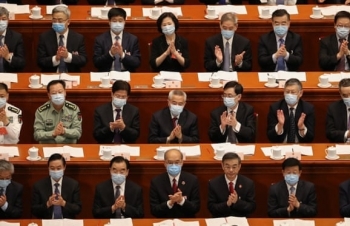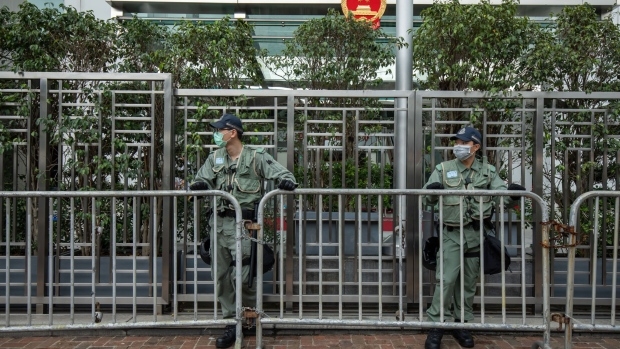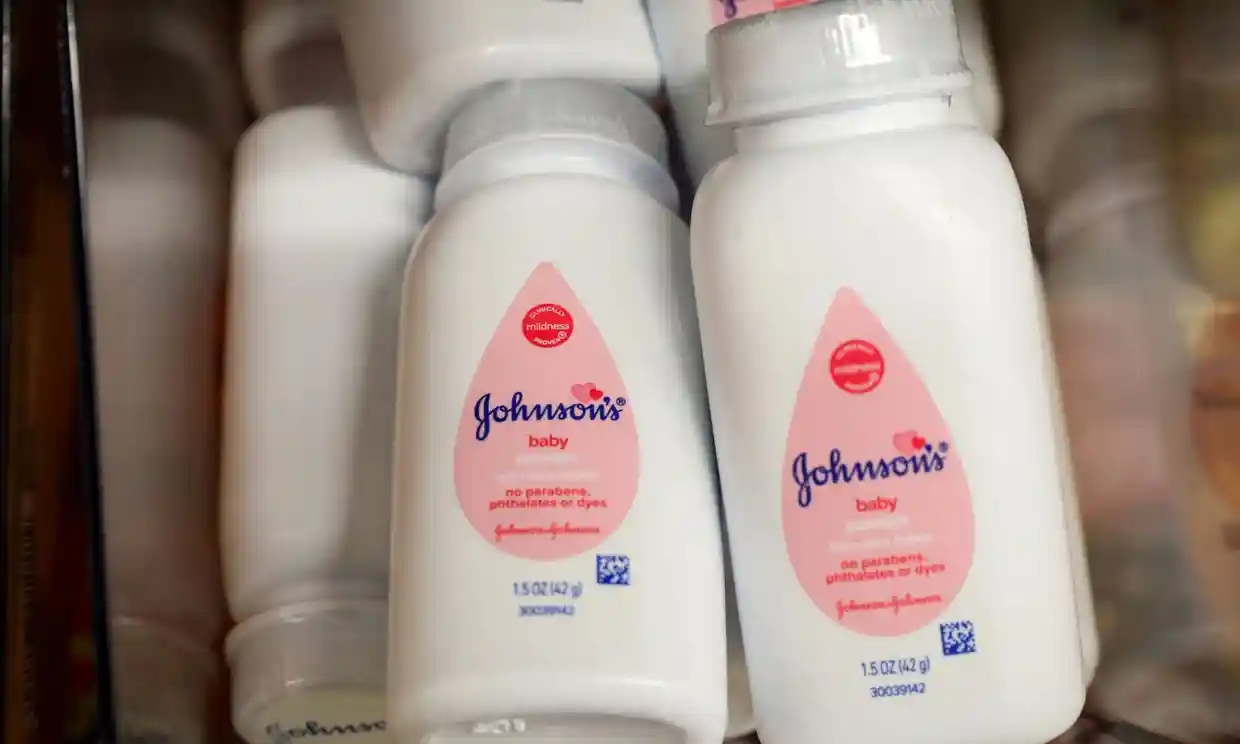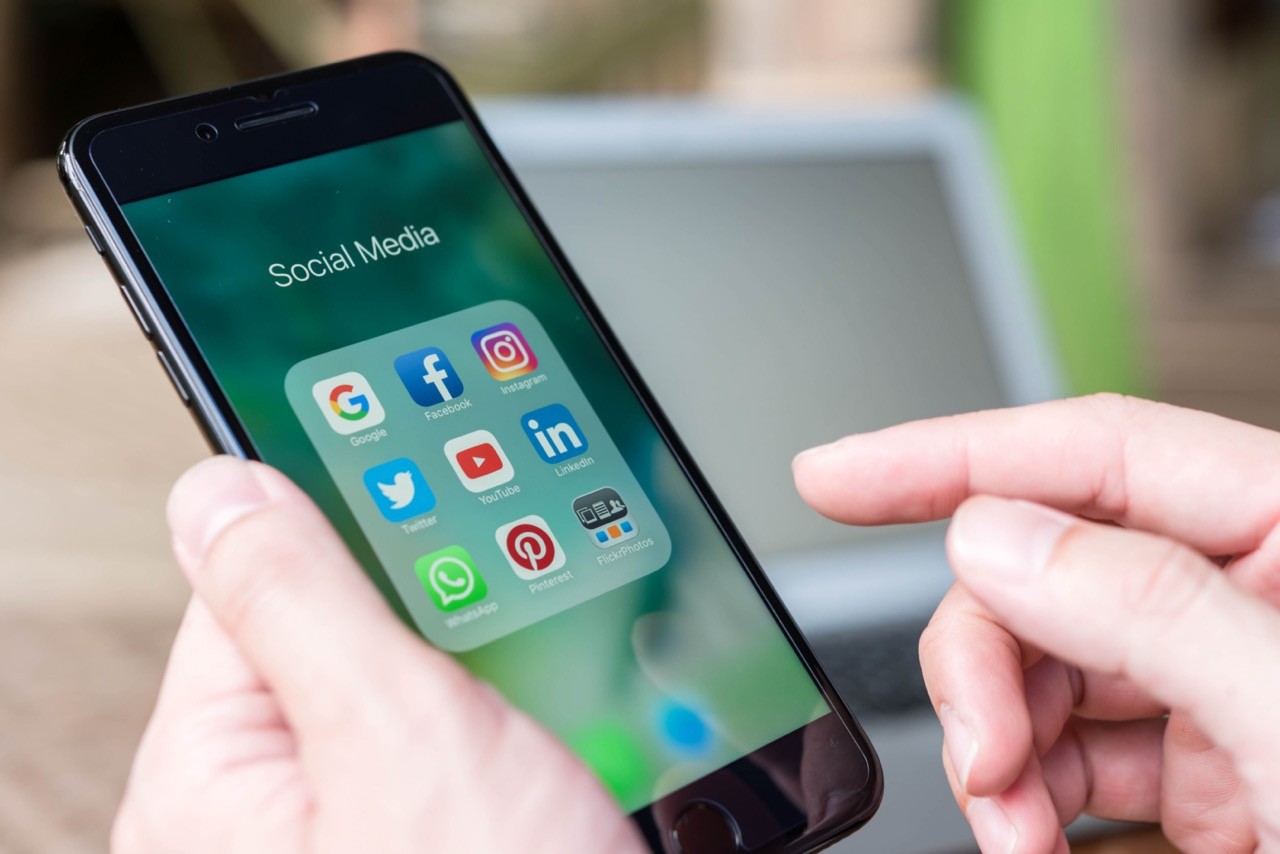Trump’s executive order might curtail protections for social media companies
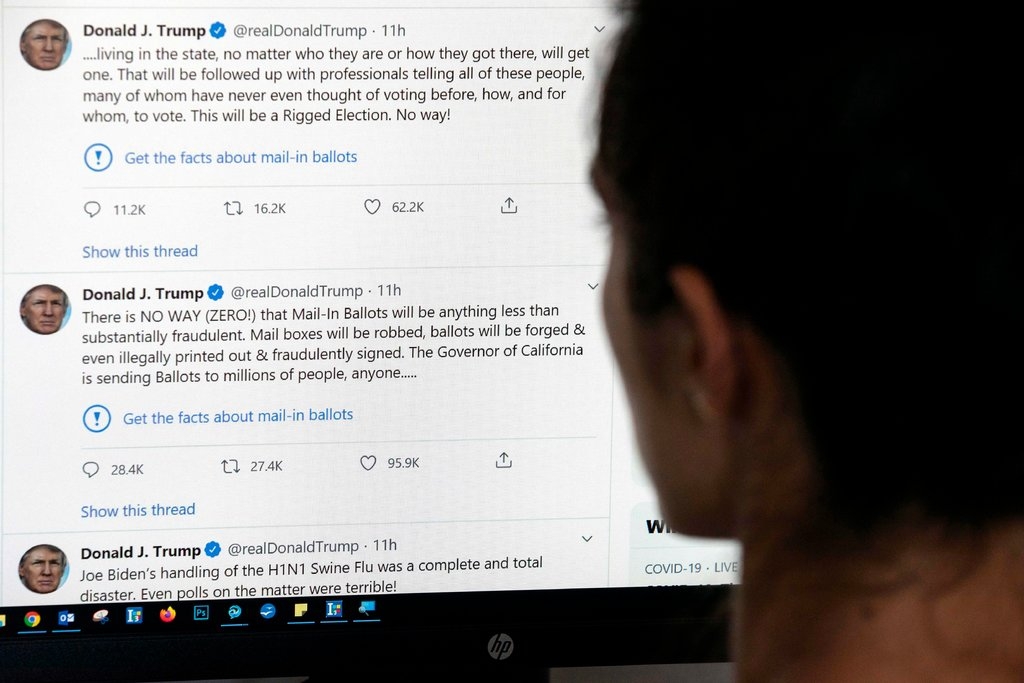 |
President Trump and his supporters have long accused social media companies like Twitter of silencing conservative voices (Photo: Getty Images) |
Such an order, which officials said was still being drafted and was subject to change, would make it easier for federal regulators to argue that companies like Facebook, Google, YouTube and Twitter are suppressing free speech when they move to suspend users or delete posts, among other examples, New York Times reported.
The move is almost certain to face a court challenge and is the latest salvo by President Donald Trump in his repeated threats to crack down on online platforms.
| The expected move comes after Twitter fact-checked Trump's mail-in ballot tweets for containing "potentially misleading misinformation, Business Insider said. No details about what Trump's order would do was disclosed. Twitter acted after Trump had alleged without evidence that mail-in ballots are likely to be “substantially fraudulent,” in tweets that the company said contained misleading information about the electoral process. The move triggered an array of rebukes from Republicans, including Trump. “@Twitter is now interfering in the 2020 Presidential Election,” Trump tweeted Wednesday, adding that “Twitter is completely stifling FREE SPEECH, and I, as President, will not allow it to happen!” The expected action by Trump highlights how tensions between some of the world's largest social media companies and conservatives are heating up amid their efforts to crack down on misinformation. Twitter and other social media companies have repeatedly denied they suppress conservative speech. |
How online companies and social media platforms will be affected by the proposed executive order?Under Section 230 of the Communications Decency Act, online companies have broad immunity from liability for content created by their users. But the draft of the executive order, which refers to what it calls “selective censoring,” would allow the Commerce Department to try to refocus how broadly Section 230 is applied, and to let the Federal Trade Commission bulk up a tool for reporting online bias. It would also provide limitations on how federal dollars can be spent to advertise on social media platforms. Some of the ideas in the executive order date to a “social media summit” held last July at the White House, officials said. Although the law does not provide social media companies blanket protection — for instance, the companies must still comply with copyright law and remove pirated materials posted by users — it does shield them from some responsibility for their users’ posts. Along with the First Amendment, Section 230 has helped social media companies flourish. They can set their own lax or strict rules for content on their platforms, and they can moderate as they see fit. Defenders of the law, including technology companies, have argued that any move to repeal or alter it would cripple online discussion. |
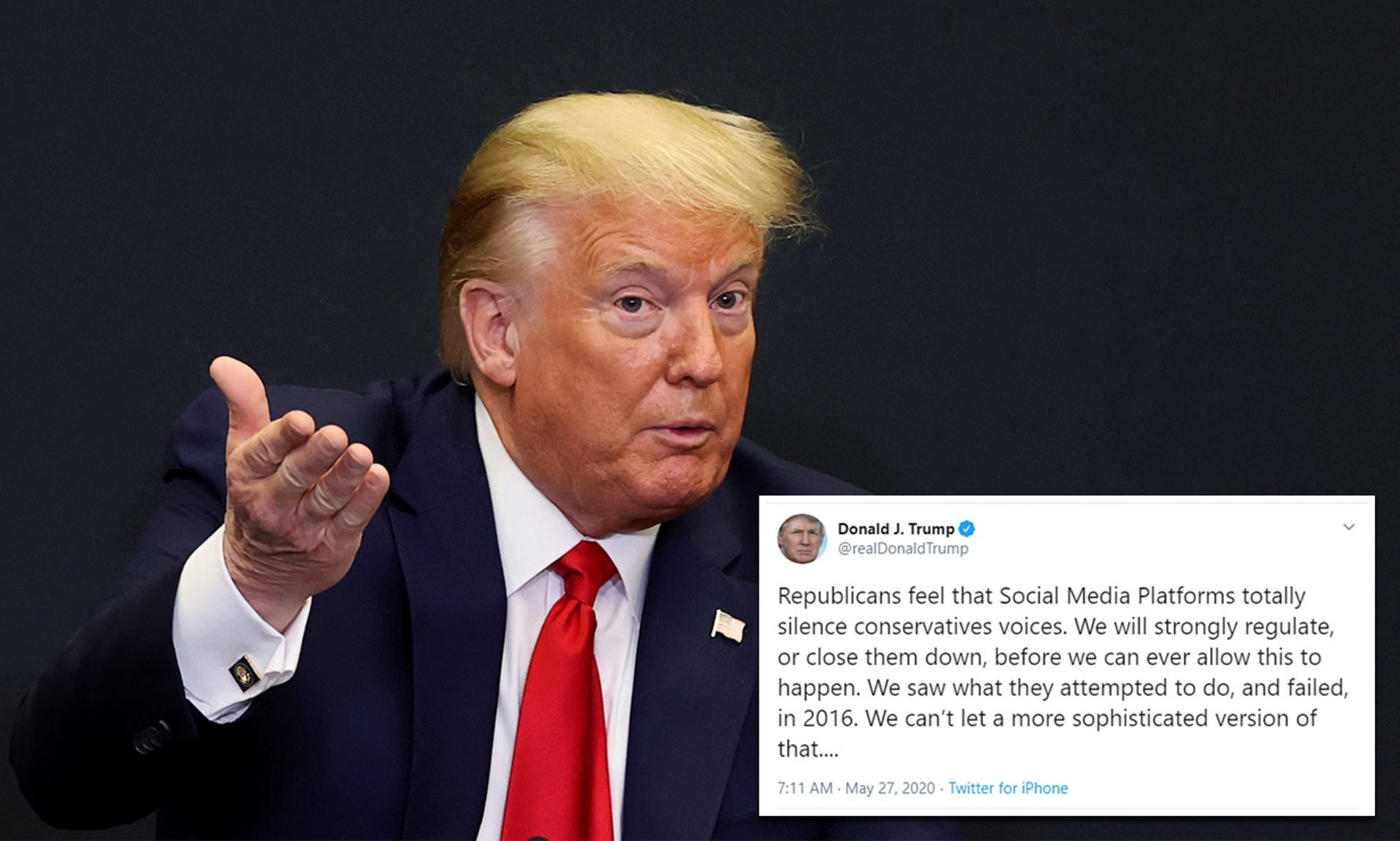 |
| (Photo: Daily Mail) |
But as conservatives have claimed that social media companies are biased against them and overmoderate their political views, Republican lawmakers have increasingly pushed to modify the statute.
Senators Marco Rubio of Florida and Josh Hawley of Missouri also chimed in this week after Twitter applied its new fact-checking standard to the president. Both lawmakers have been critics of the protections that technology companies enjoy under Section 230, and they renewed their calls to alter it.
The president has long favored Twitter as a means to reach his supporters, posting personal attacks and previewing policy. This week, Mr. Trump repeatedly spread a debunked conspiracy theory about the MSNBC host Joe Scarborough and the death of a woman who worked for him in his congressional office years ago. The woman’s widower has pleaded with Mr. Trump to stop.
The president ignored the widower’s request and denounced Twitter, claiming in a tweet that the social media company was trying to tamper with the November presidential election.
On Wednesday, he continued to criticize the company, accusing it of stifling conservative views. “We will strongly regulate, or close them down, before we can ever allow this to happen,” Mr. Trump tweeted.
What are major social media companies' responses?
A spokesperson for YouTube declined to comment on the executive order. Representatives for Facebook did not immediately respond to a request for comment.
Facebook boss Mark Zuckerberg has now also weighed into the argument, telling Fox News that Facebook had a different approach and that private companies such as social media sites should not be the “arbiter of truth”, as reported by Yahoo News.
In a taped television interview scheduled for Thursday morning with Fox, he cast aspersions on Twitter’s willingness to fact check Mr. Trump on its platform in real time.
“I just believe strongly that Facebook shouldn’t be the arbiter of truth of everything that people say online,” Mr. Zuckerberg said. “Private companies probably shouldn’t be, especially these platform companies, shouldn’t be in the position of doing that.”
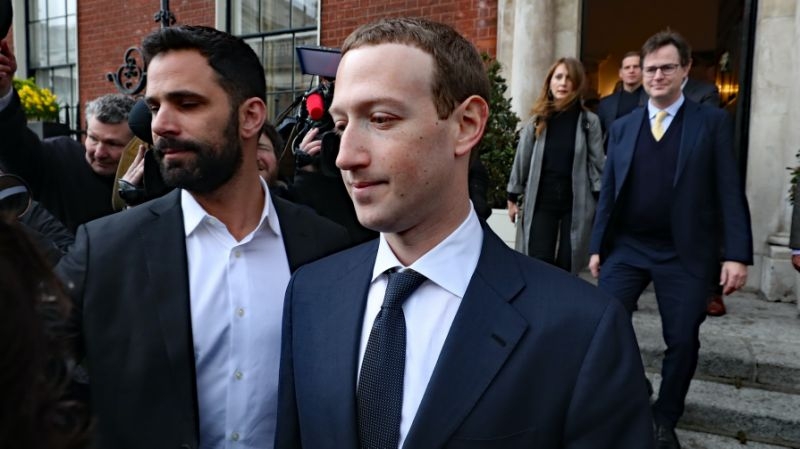 |
| (Photo: Yahoo News) |
Twitter boss Jack Dorsey, however, stood by Twitter’s decision, saying the site would continue to flag misinformation and also defended his staff after some were targeted by supporters of Mr Trump in the wake of Twitter’s fact-checking, Yahoo News said.
“Fact check: there is someone ultimately accountable for our actions as a company, and that’s me. Please leave our employees out of this. We’ll continue to point out incorrect or disputed information about elections globally. And we will admit to and own any mistakes we make,” he said.
“This does not make us an ‘arbiter of truth’. Our intention is to connect the dots of conflicting statements and show the information in dispute so people can judge for themselves. More transparency from us is critical so folks can clearly see the why behind our actions.”
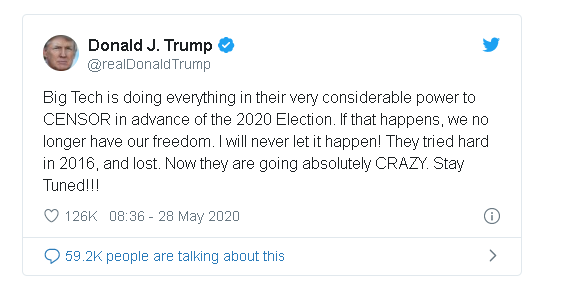 |
| Trump's tweet (Photo: Captured) |
Mr Dorsey also explained that the fact-check flag had been added to Mr Trump’s tweets because they “may mislead people into thinking they don’t need to register to get a ballot (only registered voters receive ballots).”
Courts have often ruled in favor of technology companies, upholding their immunity. It is not clear that the executive order would alter judges’ views on the law.
“It’s unclear what to make of this because to a certain extent, you can’t just issue an executive order and overturn on a whim 25 years of judicial precedent about how a law is interpreted,” said Kate Klonick, an assistant law professor at St. John’s University who studies online speech and content moderation.
Ms. Klonick, who said she had seen a draft version of the order, said that it was “likely not going to be upheld by a court", New York Times quoted.
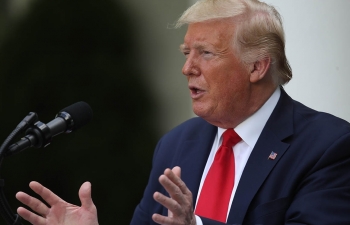 | Donald Trump to sign executive order “pertaining to social media” amid Twitter furor The proposed order comes after Twitter added a fact-checking label to the president's tweets falsely claiming mail-in voting is linked to fraud. Trump responded by ranting ... |
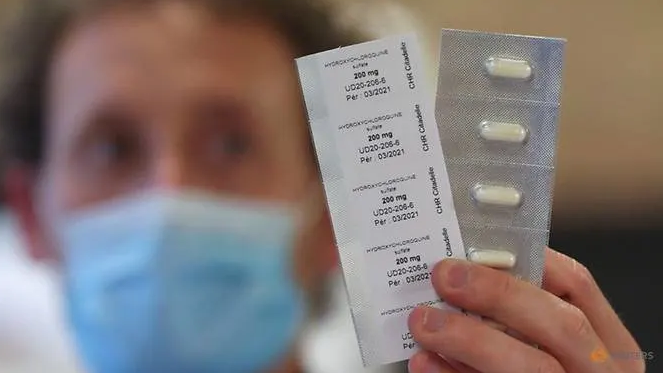 | COVID-19 treatment: WHO suspends trial of hydroxychloroquine over safety concerns The World Health Organization has suspended testing the malaria drug hydroxychloroquine in COVID-19 patients due to safety concerns, Reuters cited its Director General Tedros Adhanom Ghebreyesus ... |
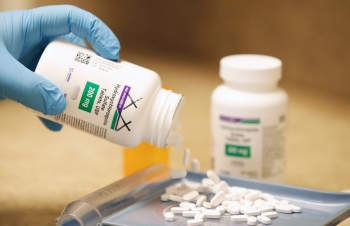 | Antimalarial drug taken by Trump might increase COVID-19 fatality rate Hydroxychloroquine does not help COVID-19 patients, and indeed may result in a greater risk of death and heart arrhythmia, according to a large, international study published ... |
Recommended
 World
World
Pakistan NCRC report explores emerging child rights issues
 World
World
"India has right to defend herself against terror," says German Foreign Minister, endorses Op Sindoor
 World
World
‘We stand with India’: Japan, UAE back New Delhi over its global outreach against terror
 World
World
'Action Was Entirely Justifiable': Former US NSA John Bolton Backs India's Right After Pahalgam Attack
Popular article
 World
World
US, China Conclude Trade Talks with Positive Outcome
 World
World
Nifty, Sensex jumped more than 2% in opening as India-Pakistan tensions ease
 World
World
Easing of US-China Tariffs: Markets React Positively, Experts Remain Cautious
 World
World

